In the 1960s and 1970s, this was a state-of-the-art supercalculator known as an autocorrelator. Its job was to combine the data taken by the Green Bank Interferometer’s four antennas and produce a single data package from them. The output was a plot produced by a chart recorder. A common sight during these years was of astronomers studying long rolls of GBI data plots in the hallways.
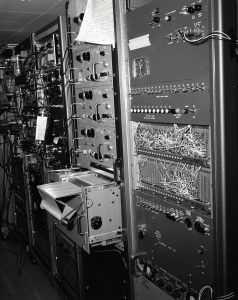
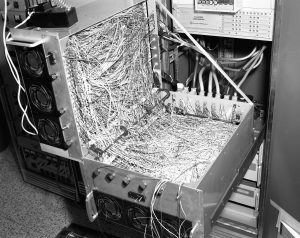
Inside the Green Bank Correlator
Inside the correlator, an instrument that was used to combine the signals from the three 85-foot telescopes and a fourth outlier into the Green Bank Interferometer. The GBI was the NRAO’s first array and served as a testbed for the Very Large Array (VLA).
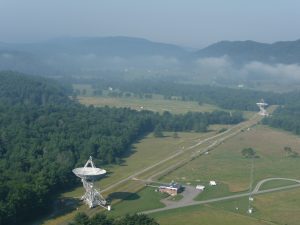
Fog Lifts Over the GBI
The outer members of the Green Bank Interferometer, called 85-3 and 85-2, are 85-foot dish radio telescopes used with a third, the Howard E. Tatel, to form a northeast-southwest aligned array. The GBI was active in the 1960s and 1970s as a testbed for the Very Large Array (VLA).
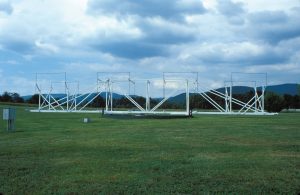
Jansky Antenna Replica
Replica of the antenna used by Karl G. Jansky to discover the radio Universe. Affectionately known as “Jansky’s Merry-go-Round,” this antenna’s turntable allowed Jansky to learn the direction of any signal he picked up. It was part of a program by Bell Laboratotries to locate sources of 20.5 MHz radio signals that might interfere with their overseas wireless communications. He located thunderstorms and the famous hiss that he determined came from the center of our Milky Way Galaxy. The discovery was widely publicized, appearing in the New York Times of May 5, 1933.
Grote Reber suggested that this replica be built in Green Bank to exact specification, down to sourcing old Model T tires for the rotation axis. The antenna’s wires are just visible against the clouds.
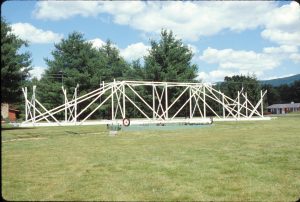
Jansky Antenna Replica in Green Bank
Replica of the antenna used by Karl G. Jansky to discover the radio Universe. Affectionately known as “Jansky’s Merry-go-Round,” this antenna’s turntable allowed Jansky to learn the direction of any signal he picked up. It was part of a program by Bell Laboratotries to locate sources of 20.5 MHz radio signals that might interfere with their overseas wireless communications. He located thunderstorms and the famous hiss that he determined came from the center of our Milky Way Galaxy. The discovery was widely publicized, appearing in the New York Times of May 5, 1933.
Grote Reber suggested that this replica be built in Green Bank to exact specification, down to sourcing old Model T tires for the rotation axis.
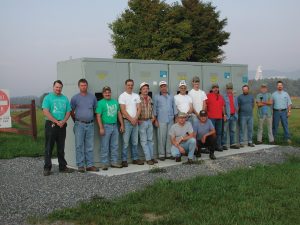
Maintenance Team in Green Bank
The world’s most impressive single-dish radio telescopes need care and skilled attention, and these are the talented folks who keep them running.





